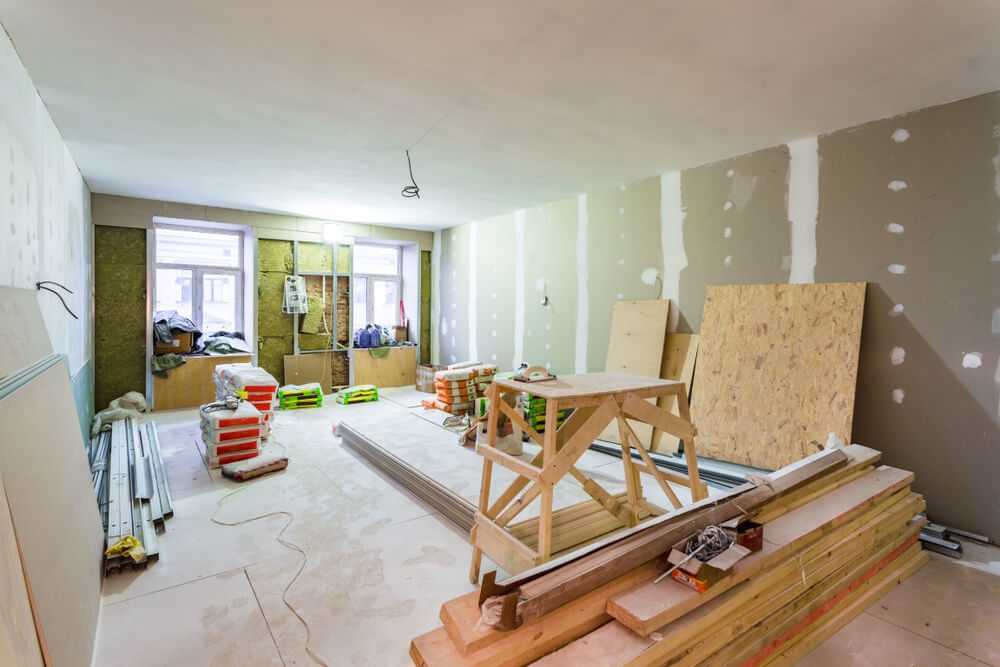Who Pays for Lender Required Repairs?
Buying a home is a thrilling experience, but unexpected hurdles can arise during the process. One common challenge for both seasoned and first-time homebuyers is dealing with lender-required repairs. These repairs can be confusing and stressful, but with the right knowledge, you can navigate them with confidence. Did you know? According to a source on the prevalence of lender-required repairs, a significant percentage of homes (insert specific percentage) identified during the mortgage process require repairs to meet loan approval standards. Lender-required repairs are fixes mandated by a mortgage lender before finalizing your loan. These repairs are typically identified during the appraisal or inspection and ensure the property meets specific safety and structural standards. Essentially, lenders want to protect their investment by ensuring the home they’re financing is sound and free of major issues that could affect its value or livability. This blog post will shed light on lender-required repairs, explaining who is responsible for paying for them and the financial solutions available to manage these costs. I. Understanding Lender Requirements Before diving into who pays for lender-required repairs, it’s crucial to understand what triggers these repair requests in the first place. At the heart of this process is the property appraisal. An appraisal is an unbiased professional assessment of a property’s value, commissioned by the lender to ensure the home is worth the amount they are lending. However, the appraisal is not just about the property’s market value; it also evaluates the safety and habitability of the home. If the appraiser identifies issues that could compromise these aspects, they will recommend repairs that must be completed before the loan can be approved. Lenders prioritize safety and habitability because they want to protect their investments. A home with safety hazards or uninhabitable conditions can decrease in value, making it a risky asset. Here are some common examples of lender-required repairs: Electrical Repairs: Plumbing Repairs: Roof Repairs: Structural Repairs: II. Who is Responsible for Paying for These Repairs? When lender-required repairs are identified, the big question that arises is: Who is responsible for paying for these repairs? The answer can vary depending on several factors, including market conditions, the terms of the purchase agreement, and the negotiation skills of the parties involved. Here’s a closer look at the roles of the seller and the buyer, and how negotiations typically unfold. 1. Role of the Seller In many cases, the seller is expected to pay for lender-required repairs. This is because the repairs are necessary to bring the property up to a standard that will allow the lender to approve the buyer’s mortgage. Sellers are often motivated to complete these repairs to ensure the sale goes through smoothly and on time. Commonly, sellers might: Fix the issues themselves before closing. Hire professionals to complete the necessary repairs. Offer a credit to the buyer at closing to cover the cost of repairs. Sellers may agree to these repairs to avoid delays or losing the sale altogether, especially in a buyer’s market where there are more homes for sale than buyers. 2. Role of the Buyer While the seller often covers the cost of repairs, there are situations where the buyer might need to step in. This is more common in a seller’s market, where demand for homes is high, and sellers have more negotiating power. Buyers who are eager to close the deal may agree to take on some or all of the repair costs to make their offer more attractive. Buyers might: Accept the property “as-is” and plan to make the repairs themselves after closing. Use a renovation loan, such as an FHA 203(k) loan, which allows them to finance the cost of repairs as part of their mortgage. Negotiate a lower purchase price to account for the repair costs they will incur. 3. Negotiation Between Parties The responsibility for paying for lender-required repairs often comes down to negotiation between the buyer and the seller. Here are some common negotiation strategies: Split the Costs: Both parties agree to share the repair costs. This can be a fair compromise, especially if both are eager to close the deal. Seller Concessions: The seller agrees to cover the repair costs, but the buyer may offer a higher purchase price or other concessions in return. Price Adjustments: The seller reduces the sale price of the home to compensate the buyer for taking on the repair costs. This can help the buyer manage their budget while addressing the lender’s requirements. Effective negotiation requires clear communication and a willingness to find a mutually beneficial solution. Both parties should work closely with their real estate agents and possibly even seek legal advice to ensure the terms are fair and clearly outlined in the purchase agreement. III: Financial Solutions for Repair Costs When faced with lender-required repairs, both buyers and sellers have several financial options to help cover the costs. Understanding these financial products can make the repair process less daunting and more manageable. Here are some popular solutions: 1. FHA 203(k) Loan The FHA 203(k) loan is a government-backed mortgage program designed to help homebuyers finance both the purchase of a home and the cost of its repairs. This loan is especially beneficial for buyers purchasing fixer-uppers or homes requiring significant repairs. Types of FHA 203(k) Loans: There are two types—Standard and Limited (also known as Streamline). The Standard 203(k) is for major renovations, while the Limited 203(k) is for smaller repairs up to $35,000. Benefits: Combines purchase and repair costs into one mortgage, lower down payment requirements (as low as 3.5%), and flexible credit requirements. Process: The loan requires an approved FHA consultant to oversee the repairs, ensuring they meet all FHA standards. 2. Fannie Mae HomeStyle Renovation Loan The Fannie Mae HomeStyle Renovation Loan is another option that allows buyers to finance both the purchase of a home and the cost of repairs with a single loan. This loan is available for primary residences, second homes, and investment properties. Flexibility: Unlike the FHA 203(k), the HomeStyle loan
Who Pays for Lender Required Repairs? Read More »












